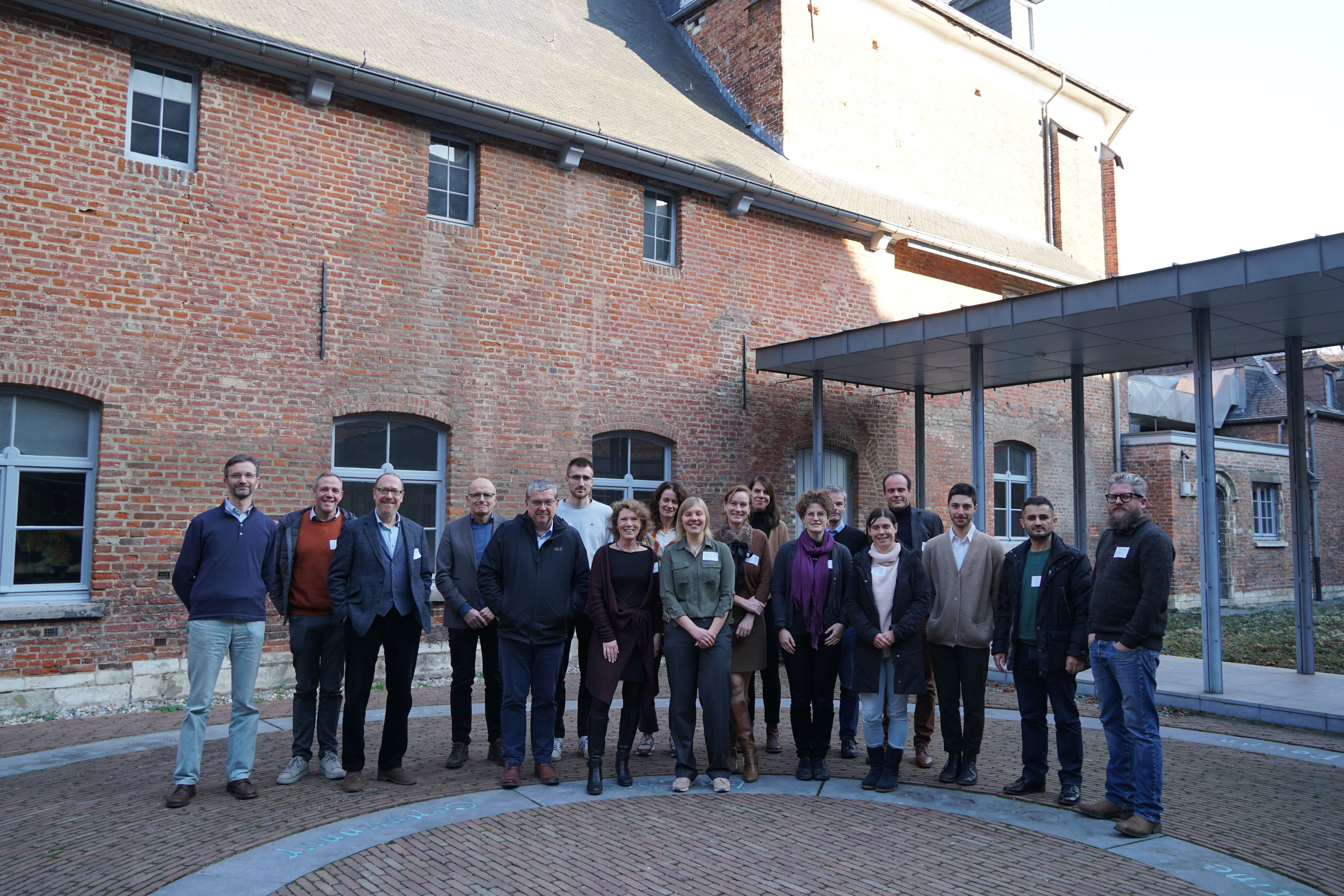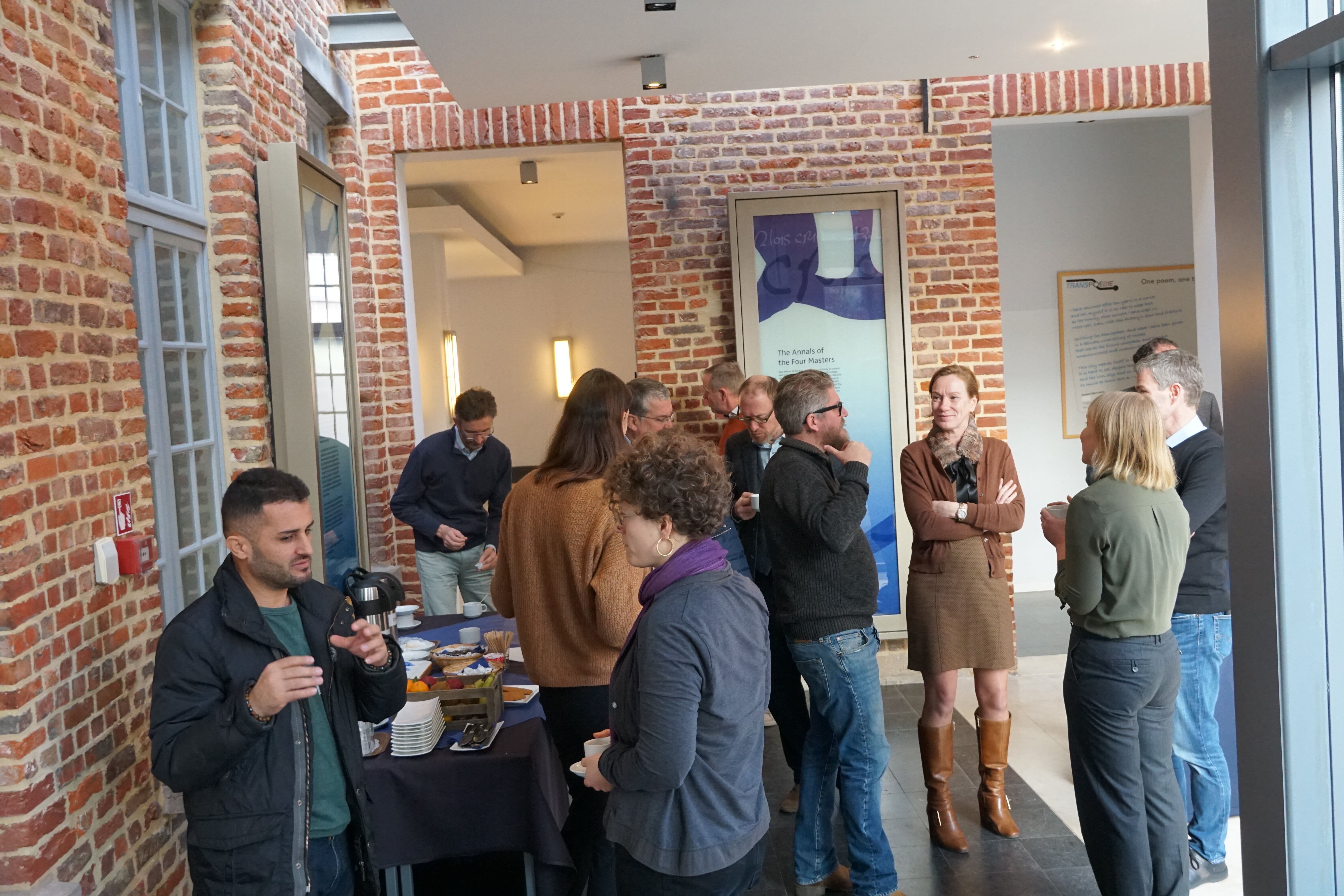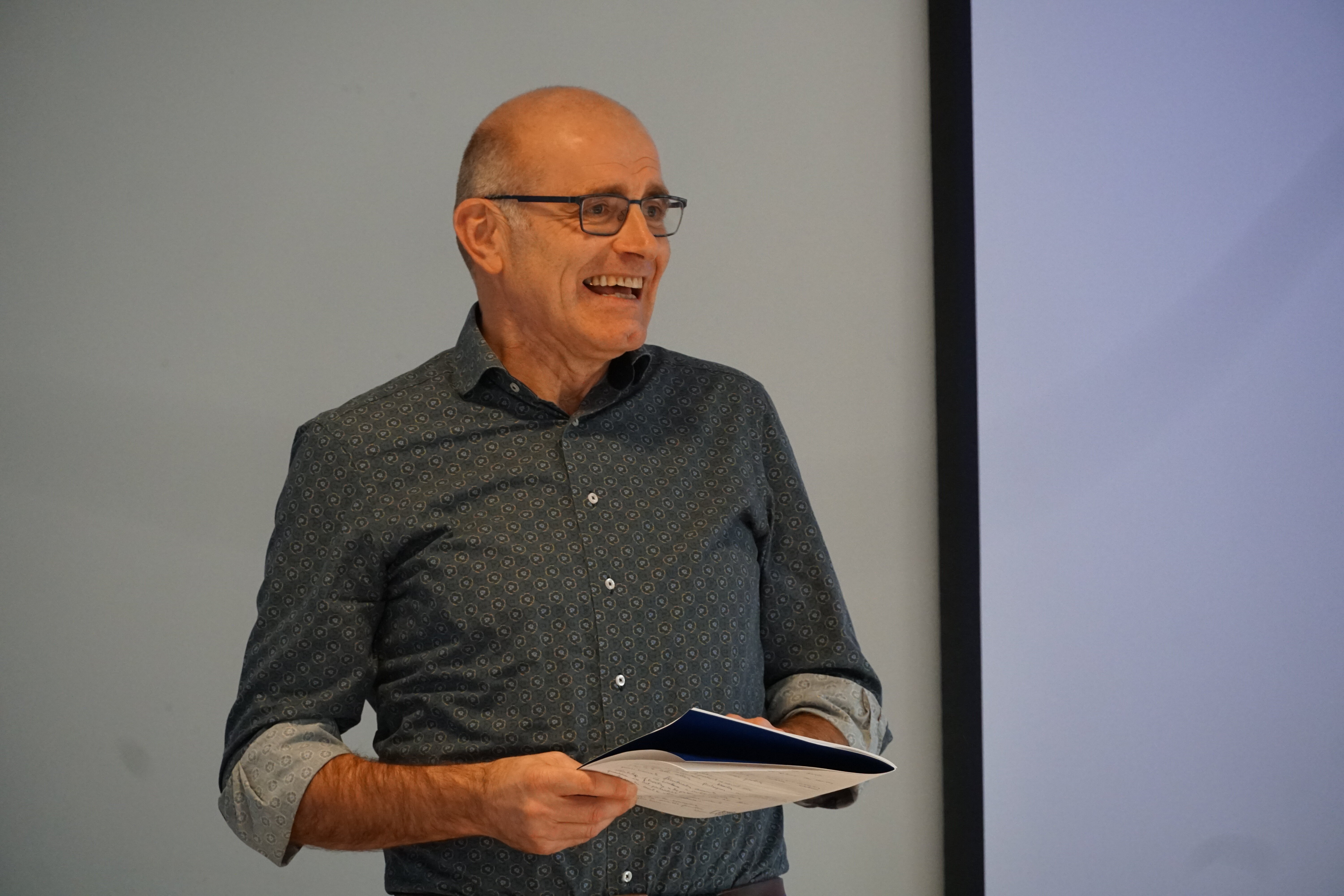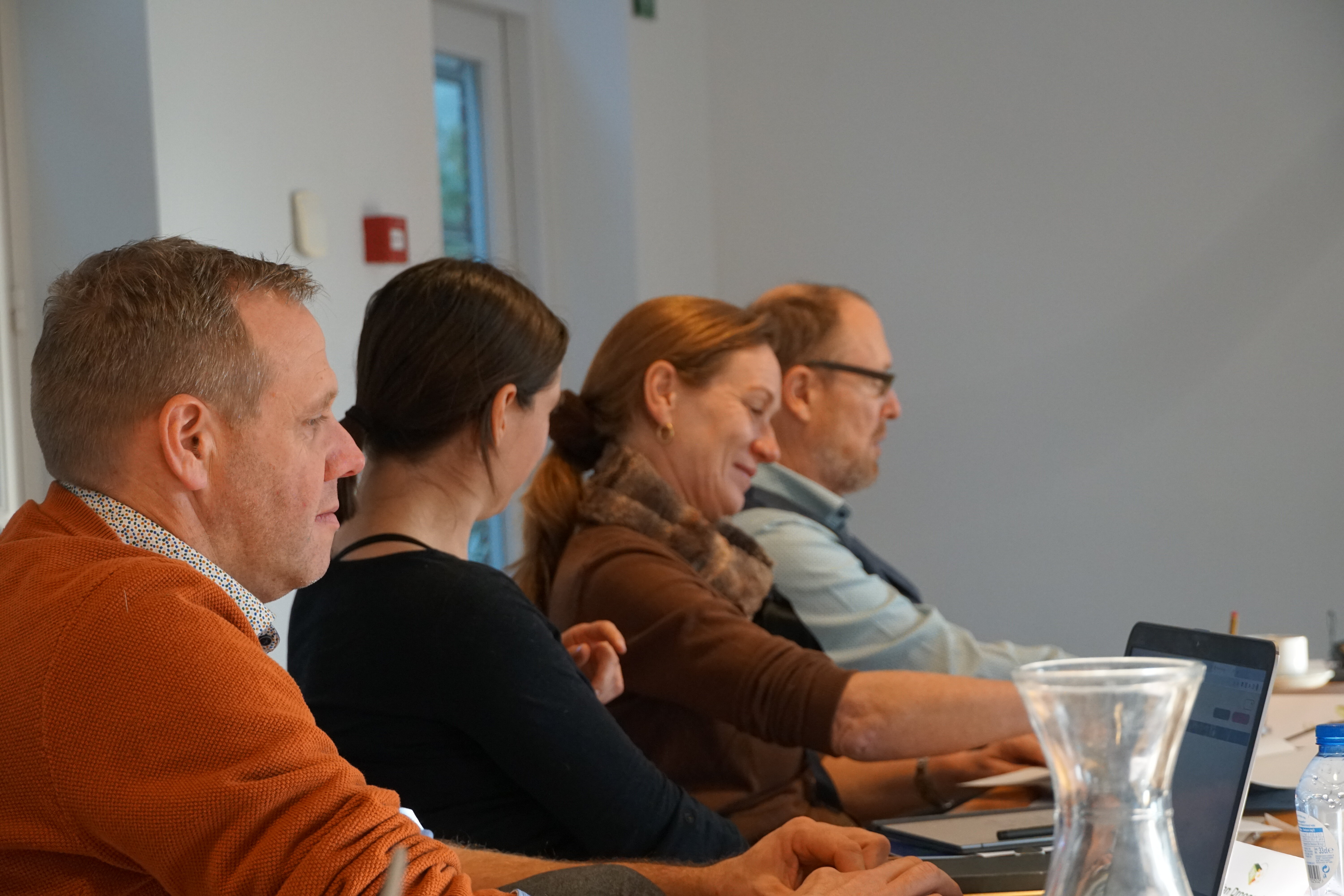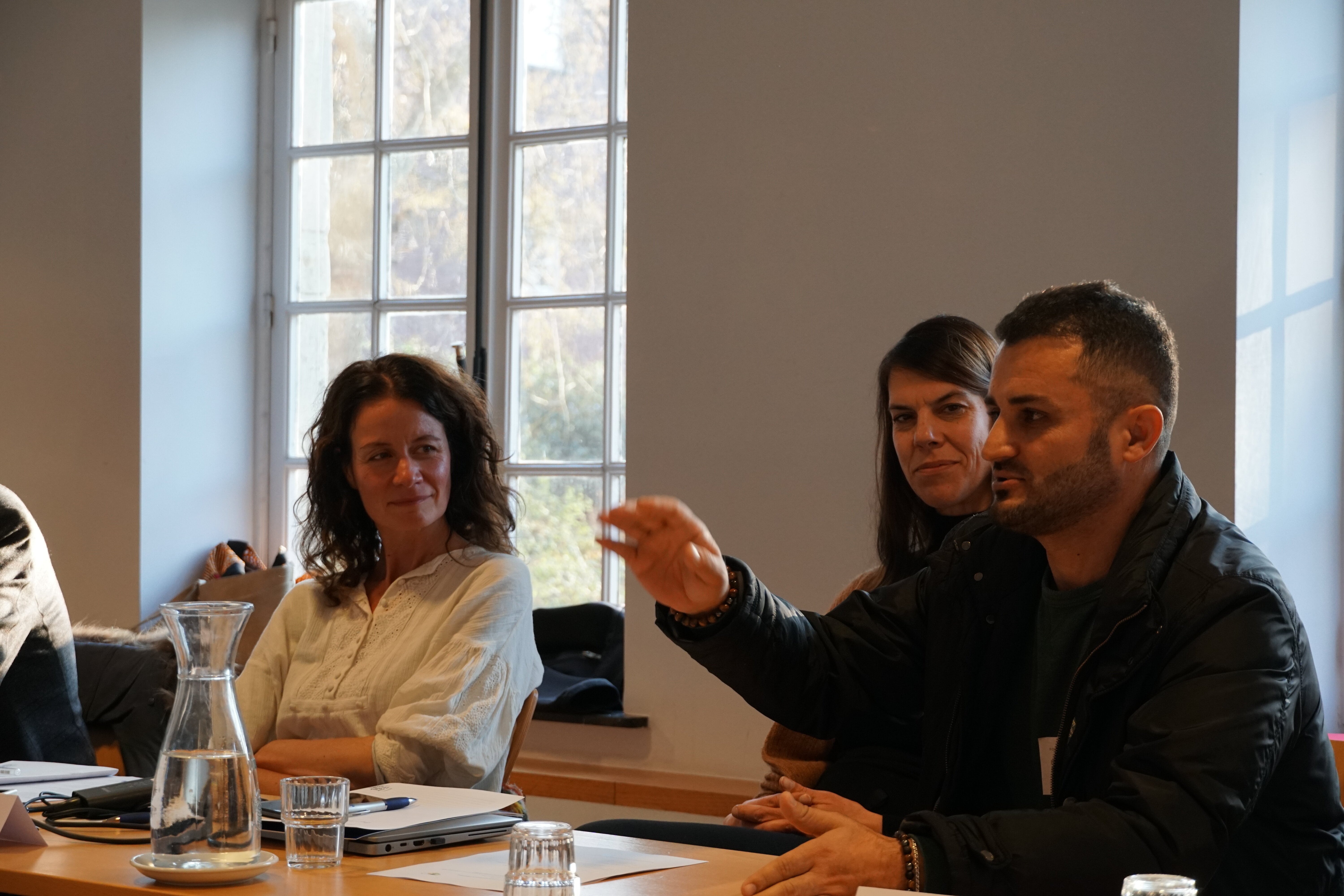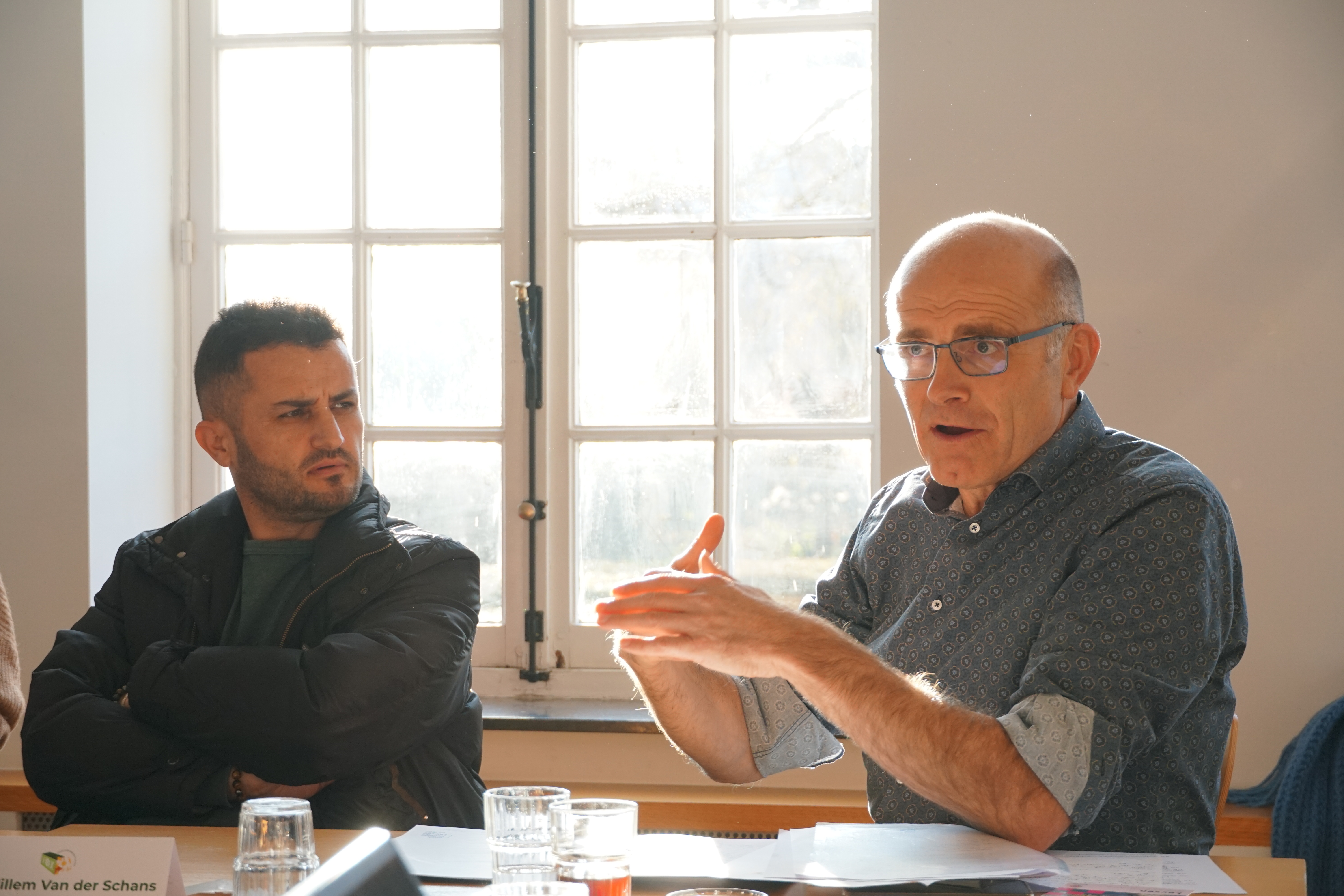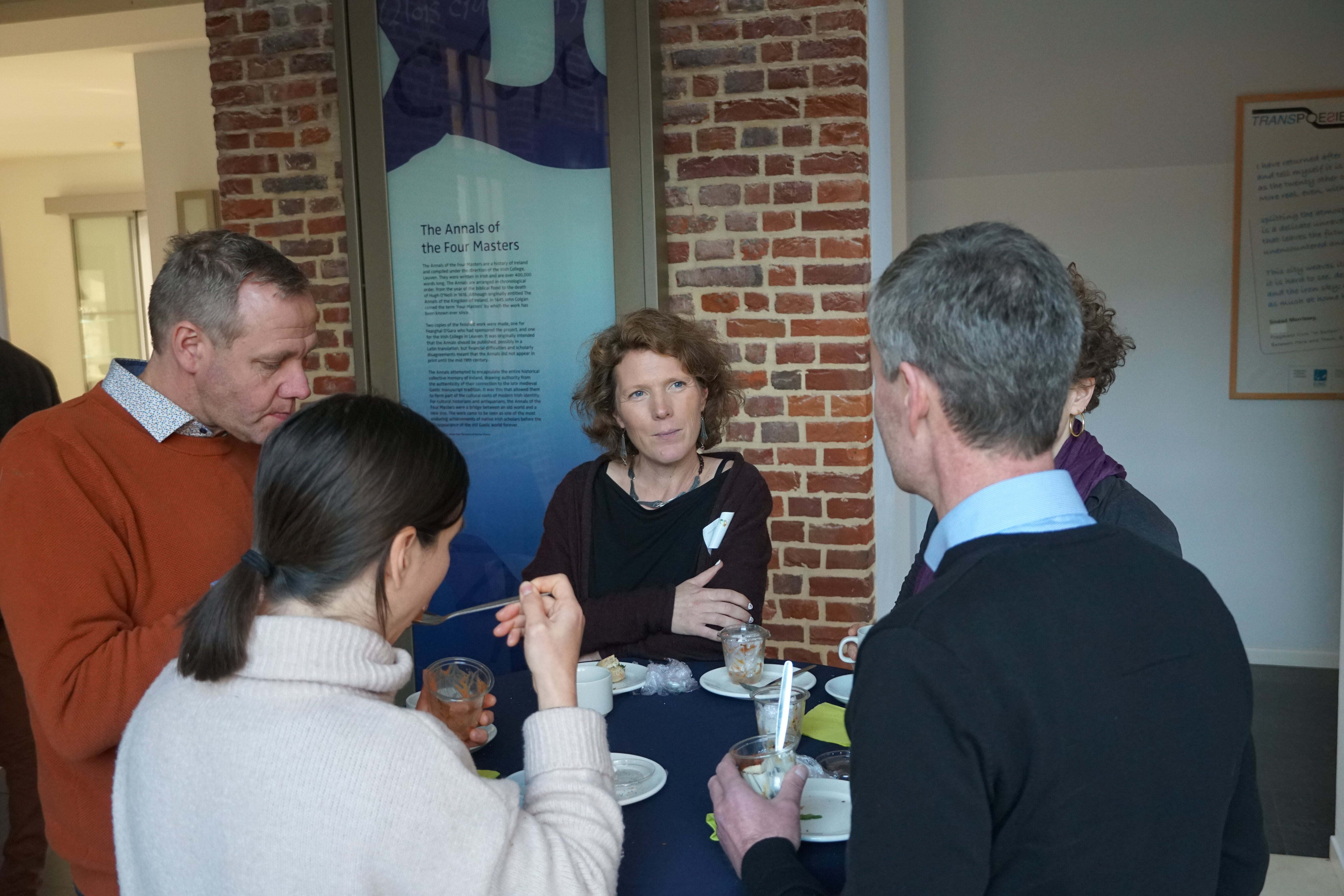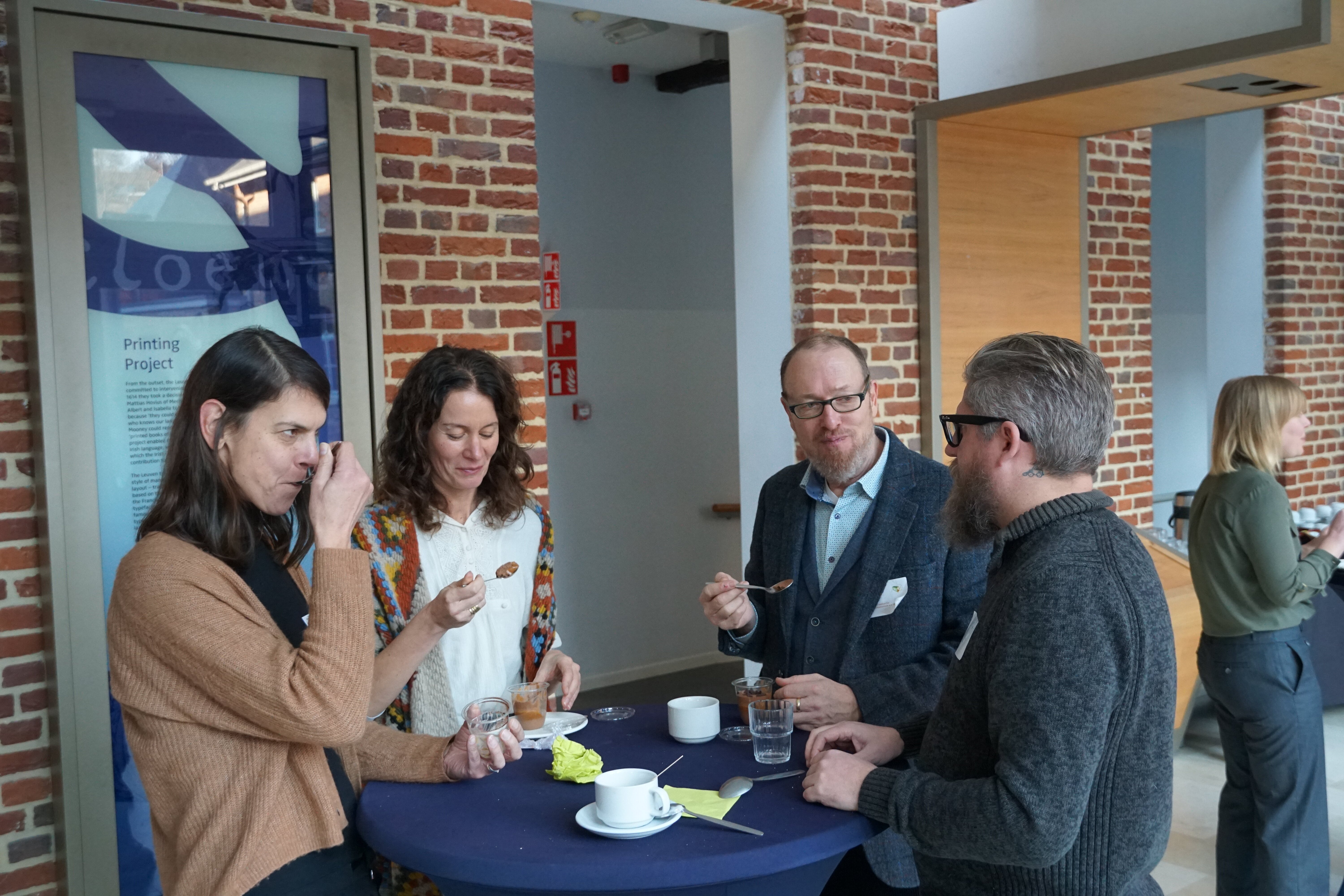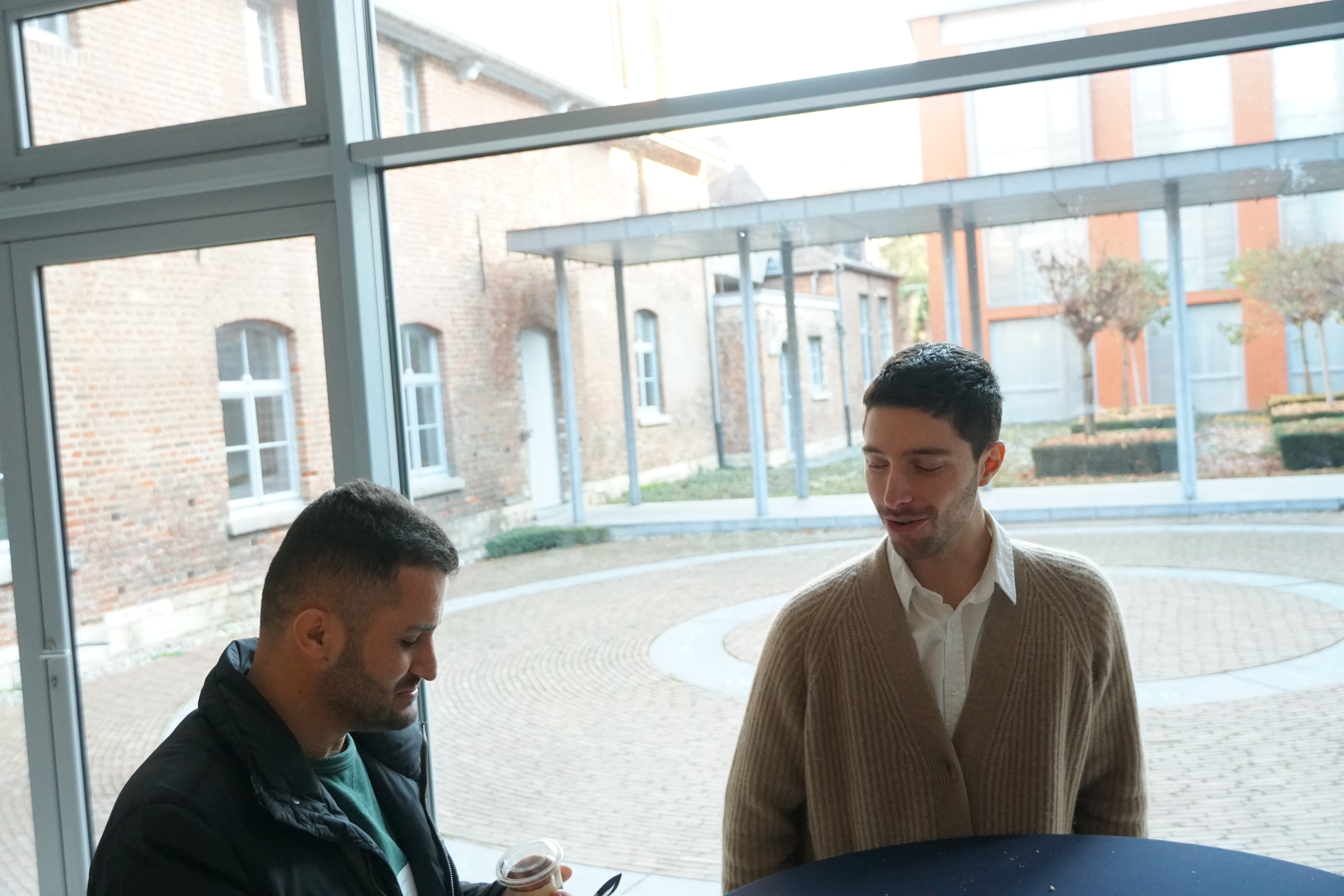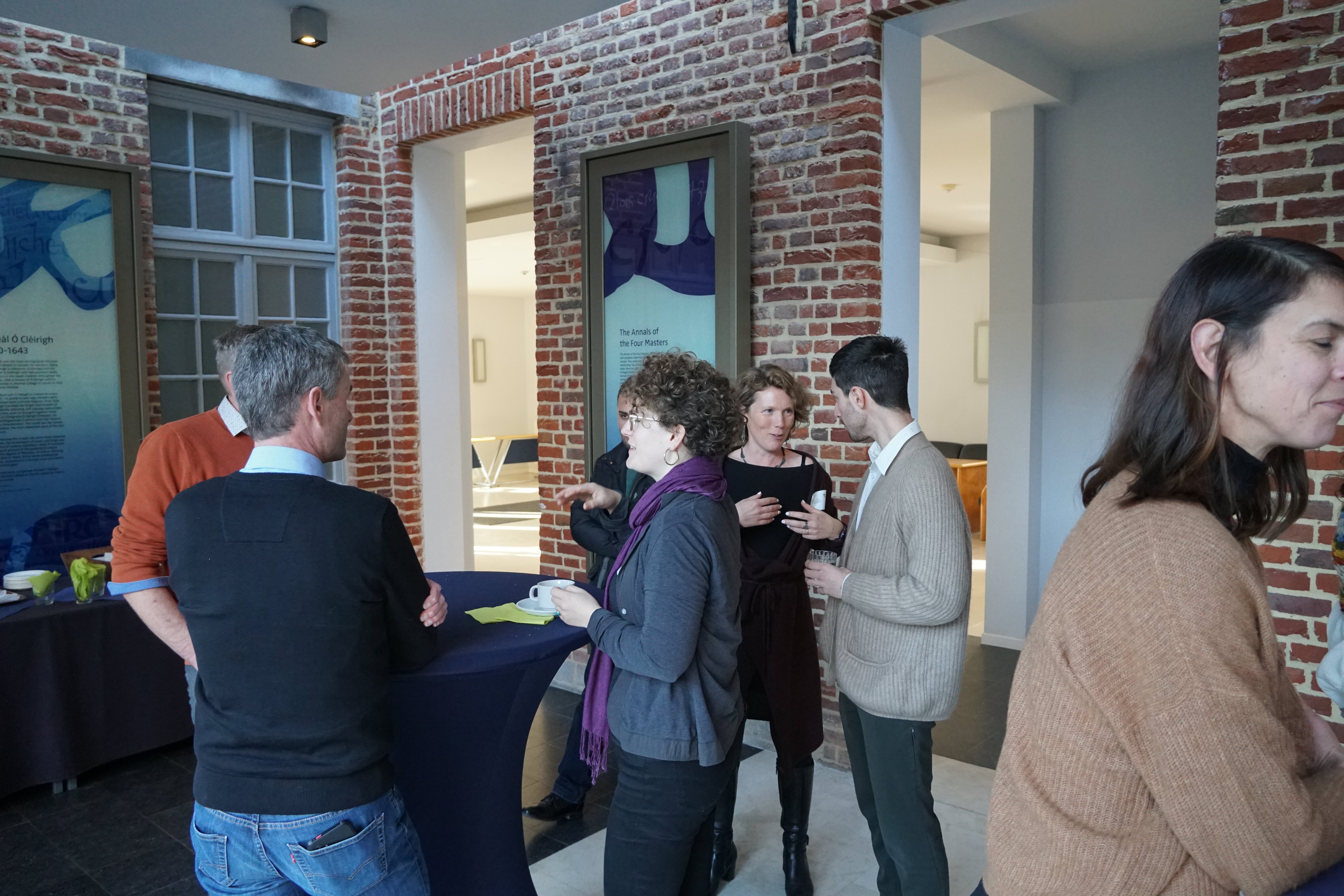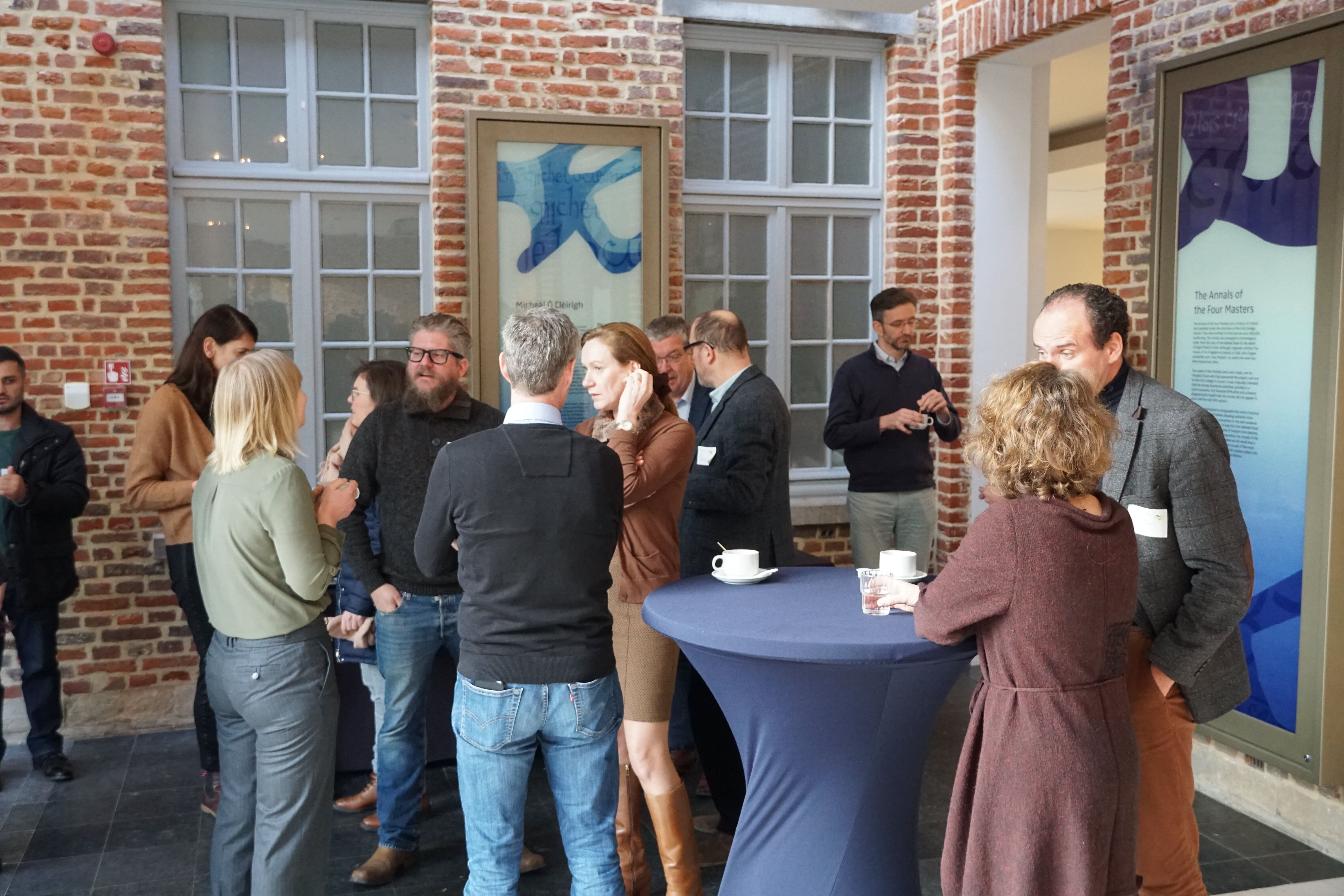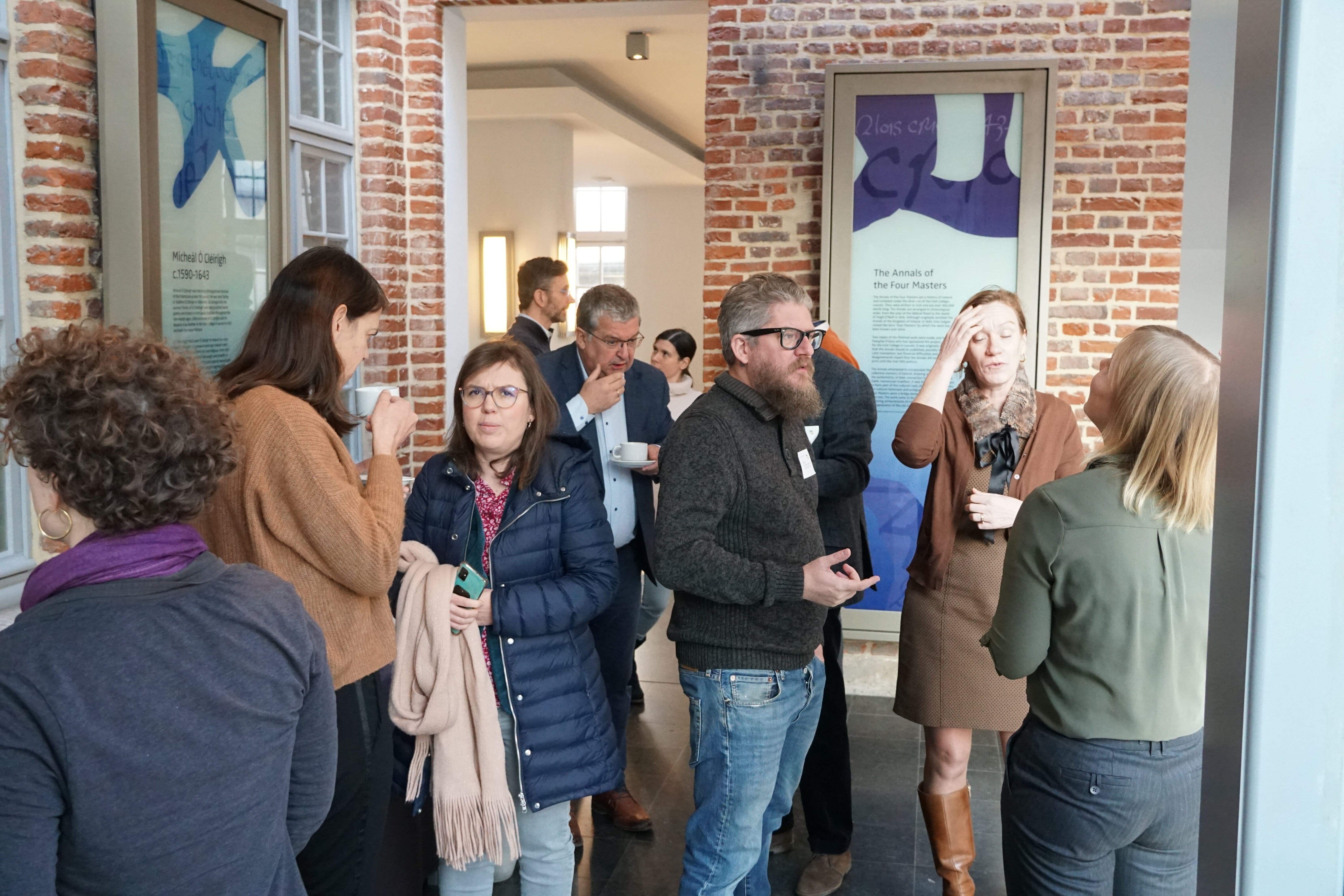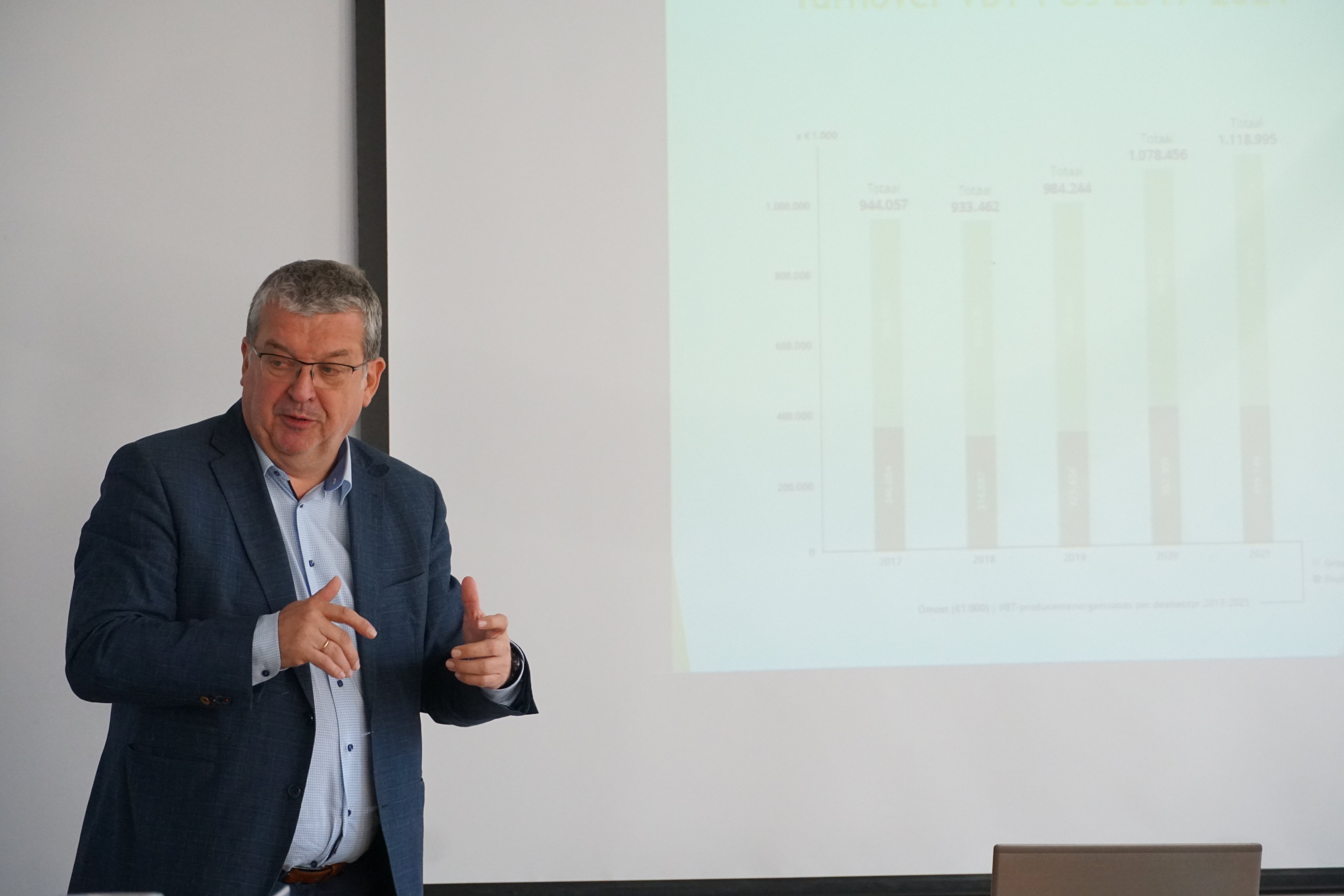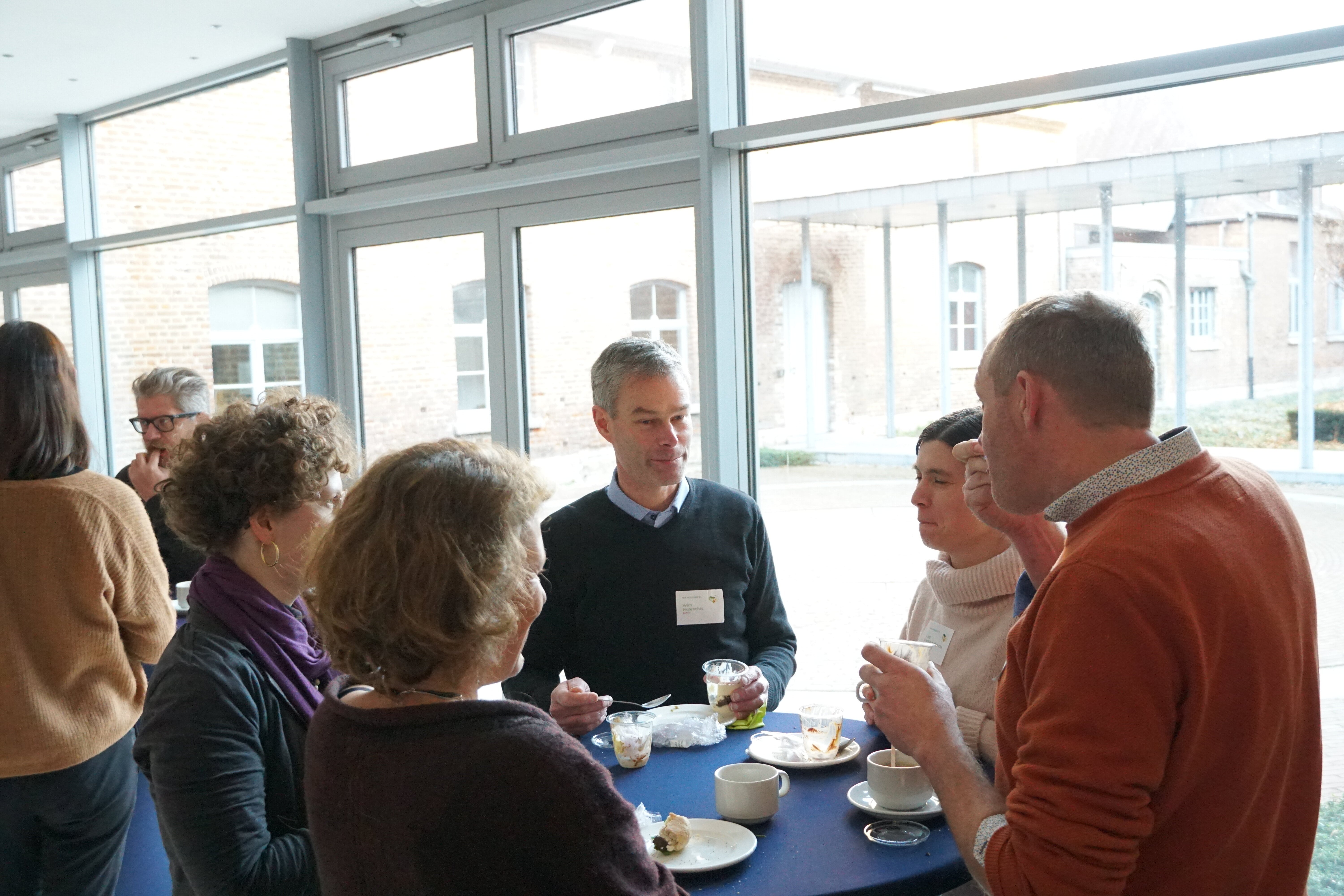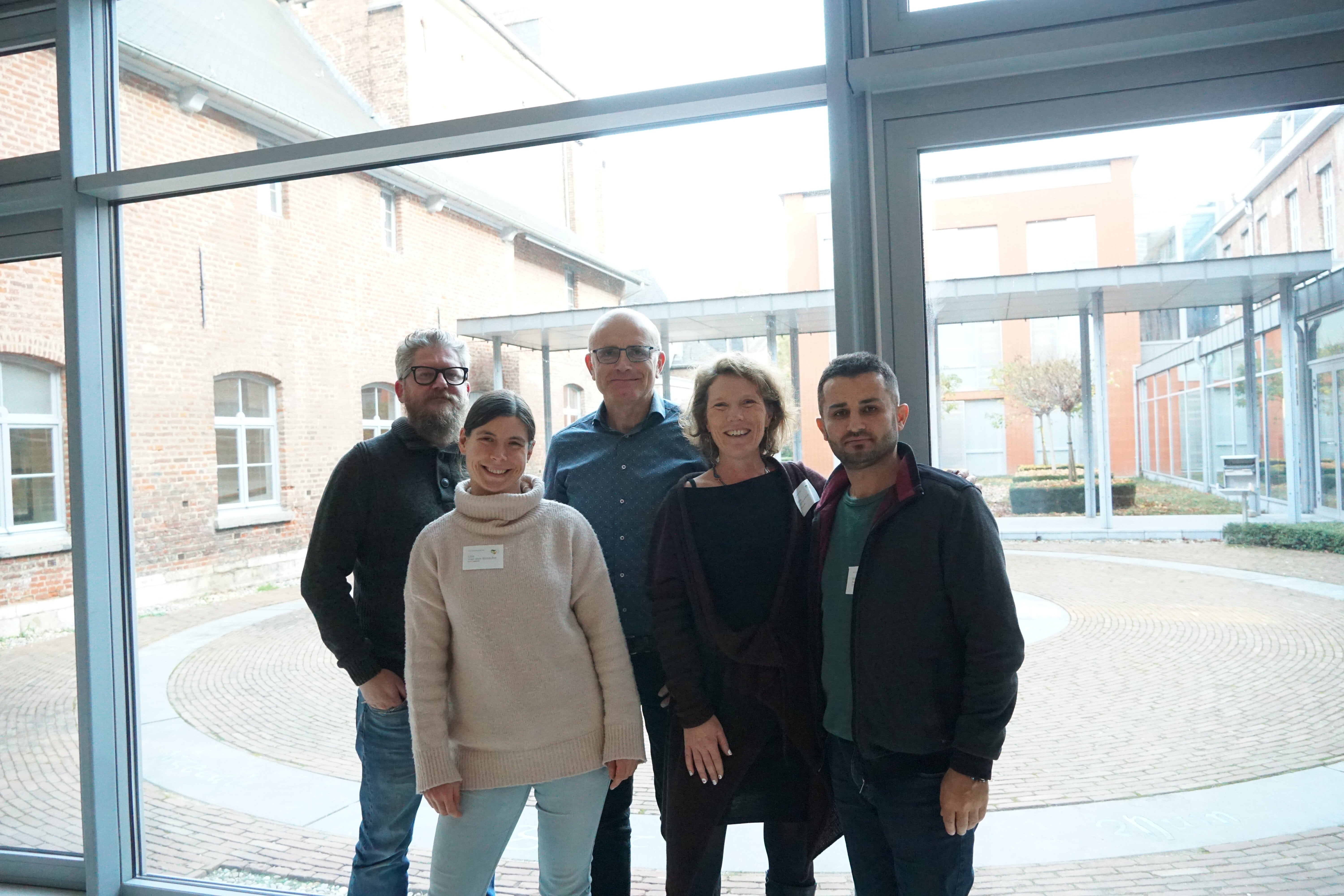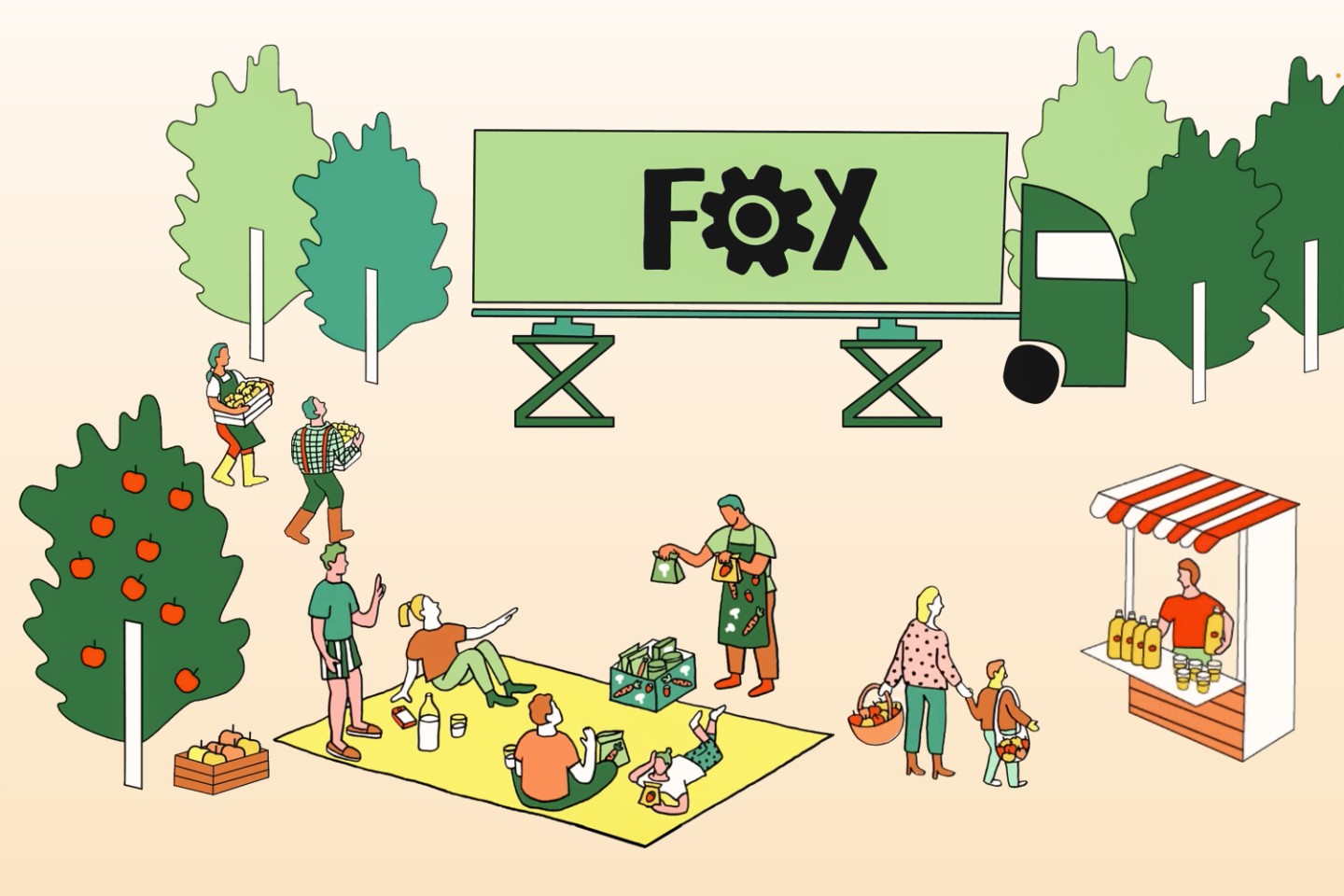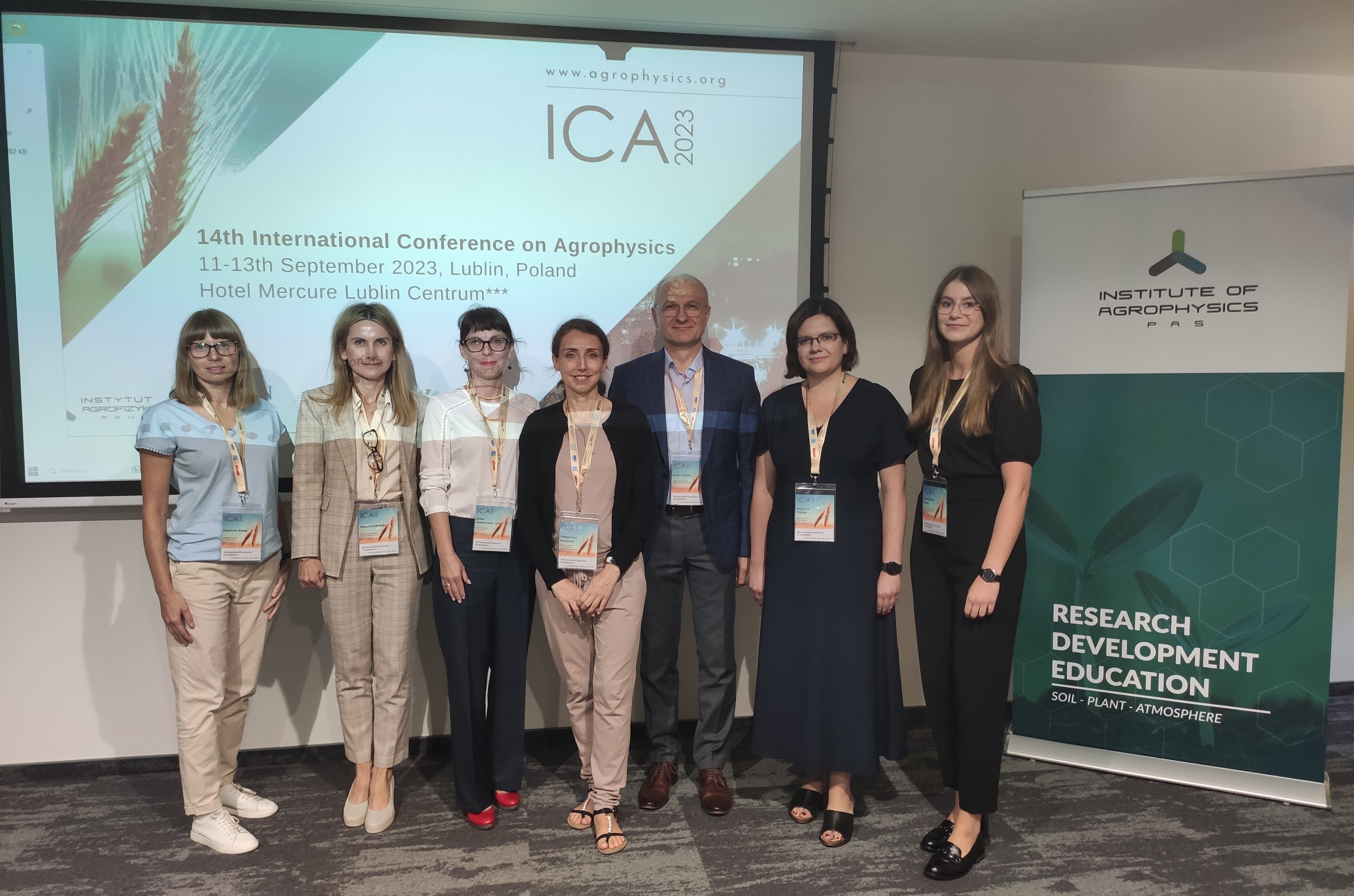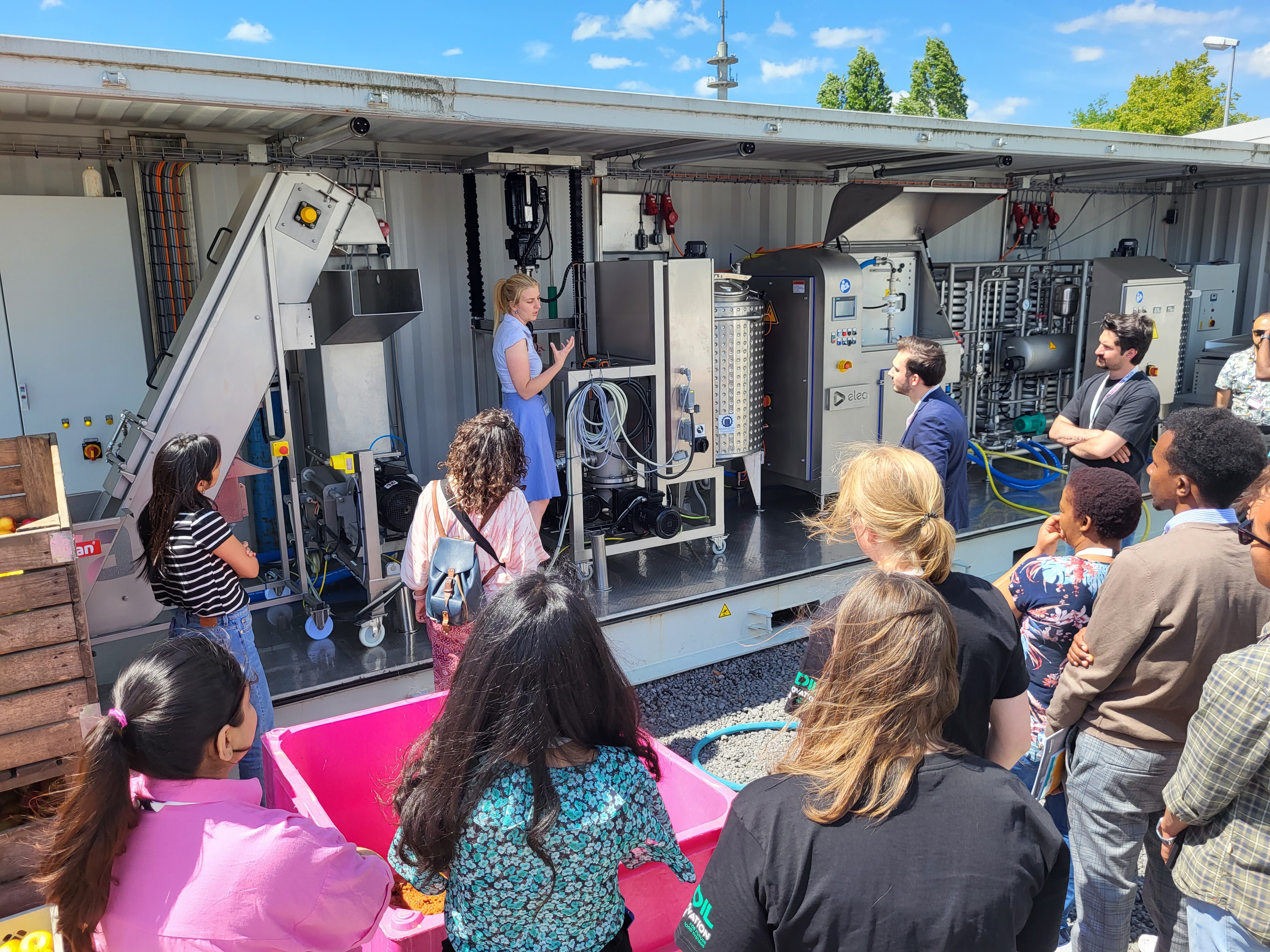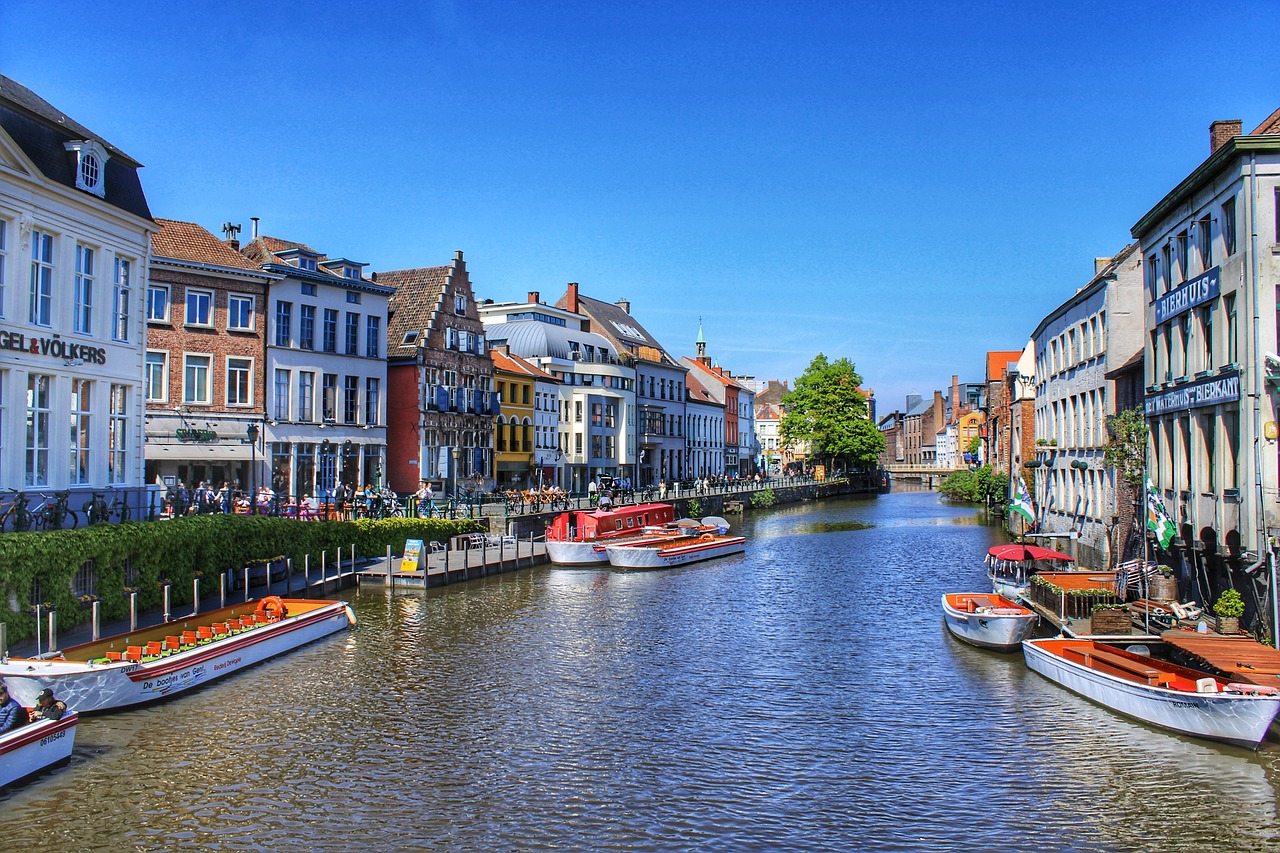Opportunities for food waste and surplus valorization with local value chains and sustainable mild processing
KU Leuven, and partners for the FOX project bundled forces to organize a workshop on business opportunities and sustainable solutions to reduce and valorize food waste. The workshop took place on the 14th of December, at the Irish College in Leuven. 21 experts discussed the challenges and opportunities of flexible and mobile solutions to valorize food waste and give farmers and other actors a new perspective to gain value from fruits and vegetable surplus or waste. The workshop was organized within the framework of the H2020 project Food processing in a box (FOX). Tessa Avermaete (KU Leuven) and Peter Holl (DIL) hosted the workshop.
According to recent estimates, almost one-third of the food that is produced globally ends up as waste. In Europe, almost 20% of the production does not reach the final consumer. This, other than exacerbating ecological degradation and resource depletion, produces economic costs for all actors involved in the sector and society. However, stepping away from negativism, food waste and surplus turns into an opportunity for rethinking, in a more resilient and sustainable mean, the way we produce, process and distribute food. Ergo, positive reinforcing solutions require multiple actors to join forces to release the inefficiencies of present food value chains and support those who are affected.
The global stakeholder workshop on food waste and valorization brought together diverse actors in the food system. At the Irish College in Leuven representatives of the academia, private companies, policymakers, non-governmental organizations, farmer representatives and foodbanks were called to discuss about innovative solutions in the fields, as well as potential bottlenecks, uncertainties, and positive experiences. Such a dialogue served to shed light on the prospective pathways towards food systems that waste less and equally share the value that is generated through economic activities.
Several members of the FOX consortium attended the meeting. Furthermore, we welcomed representatives from producer organizations in Flanders, COPA-COGECA, Food Banks, DG AGRI, Task Force Korte Keten, as well as the Flemish government. Also, partners of related European projects RUSTICA, ZEROW and COCOREADO attended the meeting.
The event opened with the presentation of the FOX project. FOX is a unique collaboration between universities, research institutions, industry and associations in 8 countries which aims to stimulate food waste recovery and short supply chain configurations for fruits and vegetables. The uniqueness of the project lies in the development of small-scale and mobile processing units applying innovative mild processing technologies. These units give farmers and other actors within the supply chain the chance to explore new sustainable business models at a regional level. To date, the technologies that are explored within FOX are suitable to produce innovative fruits and vegetable juices, dried products, and mixed fruit snacks, as well as identify optimal valorization routes for food surplus or waste.
However, to make these technologies viable and usable, cooperation between institutions, industry, and farmers is crucial. What emerges from the event, is that no single value meaning can meet the needs and worries of all actors. Valorization cannot have a single, all-inclusive, solution, but it rather needs to adapt to the specificities of the involved actors.
Furthermore, legislation and public financial support are increasingly decisive to facilitate the adoption and development of new, more sustainable, value chains and technologies like the one studied in FOX. This is also the road traced by both national and European bodies that want to promote sustainable farming, as well as innovative and technological practices amongst other things.
Not only farmers but cooperatives and auctions might benefit from local and innovative solutions that deal with food surpluses. These actors are increasingly interested in discovering new products that can help them become more resilient and gain competitive advantages over global markets. However, this cannot be at the expense of social, and ecological dimensions. Again, the FOX approach does not only give the possibility to develop such new products, but it can also benefit the efficiency of the supply chain (e.g., processing locally and transporting high-value products instead of waste or surplus), creating new social value and reducing the environmental burdens of logistics.
Amongst the concerns raised during the discussion, is whether such small-scale technologies can be scaled up to face the enormous amount of surplus and waste produced each year. Just think that in Belgium alone, about 20 000 tons of apples are processed into juice from surplus from auctions. This makes it even more important to re-think the use of such small-scale technologies, which would struggle to fit into the traditional mechanisms of the agri-food chain. At the same time, they could be used to find great opportunities in the creation of new markets, such as with local or monovarietal products.
Furthermore, some doubts have been raised about the suitability and readiness of conventional distribution channels to sell high-value, niche food products in an efficient way. Therefore, the development of a concise marketing campaign and communication strategy on the main selling points of these products will be imperative for a successful product launch.
The event concluded with some reflections from the multi-layer profiles of experts about the opportunities and suggestions for further technological development and policy action. What is clear is the potential of the FOX approach to generate new value for farmers, as well as for all other players in the agri-food supply network. We face the possibility to create more resilient markets that are less reliable on global, and more uncertain dynamics. At the same time, healthier and more sustainable products could be offered to consumers.
To exploit these opportunities, however, the experts agreed on the need for simplification to access economic funds, homogenization of rules within countries and throughout Europe and more efficient distribution of resources that currently risk to over-emphasize earlier technological development, while restraining middle-phase investigations, follow-up research, and market implementation.
The event was a key moment for multi-stakeholder dialogue to promote knowledge sharing and constructive criticism at the multinational level. KU Leuven and all the FOX partners express their gratitude to all the experts participating at this European stakeholder workshop.
Participants: Peter Holl – Deutsches Institut für Lebensmitteltechnik e.V. (DIL), Tessa Avermaete (KU Leuven), Lorenzo Giacomella (KU Leuven), Kerstin Pasch (DIL), Bianca Drepper (Flemish Government), Luc Vanoirbeek (VBT / COPA COGECA), Melanie Van Raaij (Boerenbond / ZEROW), Bart Van Droogenbroeck (ILVO / ZEROW), Lisa Van den Bossche (ILVO / ZEROW), Jan Willem Van der Schans – (Taskforce Korte Keten), Dominiek Keersebilck (REO Veiling), Patricia Lopez-Blanco (DG AGRI), Wim Hubrechts (BelOrta), Antoon Vanderstraeten (journalist Farmers of Europe), Liesbet Vranken (KU Leuven), Anne Terhorst (FoodTechBrainport), Bledar Meta (COCOREADO ambassador), Tim Rowe (KU Leuven), Etienne Rubens (FoodBanks).

